South Ossetia war, 9 years on: EU probe ignored, ‘nobody paid price’ for bloodshed
On August 8, 2008, Georgia launched an attack on civilians and Russian peacekeepers in South Ossetia.
Despite an EU probe concluding that Tbilisi initiated the conflict, no one in Georgia has been held accountable, a Georgian politician told RT.
South Ossetia these days is remembering and mourning the victims of the conflict known as the Five-Day War, in which up to 2,000 civilians and over 70 Russian peacekeepers were killed. In the early morning hours of August 8, the Georgian military launched an assault on the South Ossetian capital, Tskhinval, shelling the city with Grad multiple rocket launchers.
The conflict also cost Georgian lives, with over 150 military personnel and nearly 200 civilians killed.
Memorial events this year included an official visit to the Museum of Burned Souls near Tskhinval. The memorial was built at the site where in August 2008, civilian vehicles came under heavy fire from Georgian troops as people were trying to help their relatives escape the constant shelling in the city.
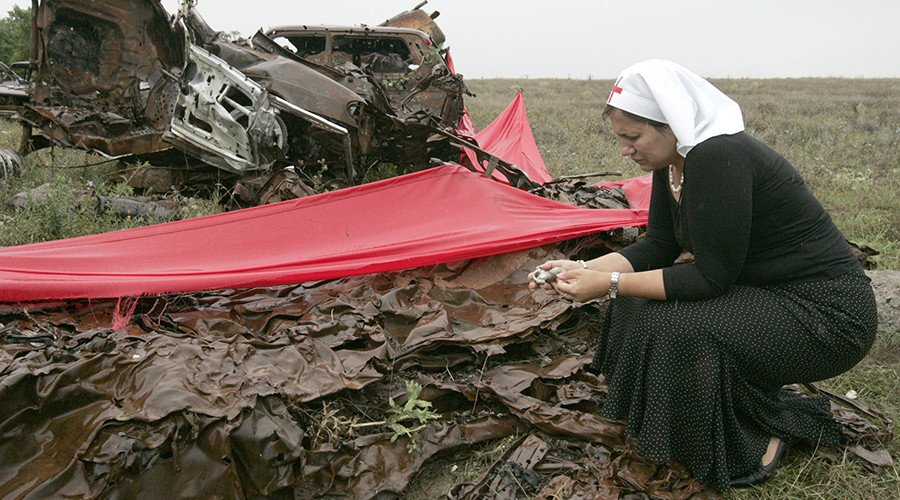
The Russian mission was present in the region, according to previous international agreements, to guarantee peace in the then-self-proclaimed republics of South Ossetia and Abkhazia. Having violated a previous ceasefire, Tbilisi launched an offensive to try and bring the territories back under its control.
A decades-long uneasy relationship between Georgians and Ossetians began to gain momentum amid the rising nationalism in the late 1980s, not long before the collapse of the Soviet Union. A 1990 ban on regional parties by the Georgian Supreme Council led to Ossetians proclaiming South Ossetia a Soviet Democratic Republic, fully sovereign within the USSR. A violent conflict then broke out in 1991, ended with a ceasefire and the establishment of a peacekeeping force of Ossetians, Russians, and Georgians.
READ MORE: Georgia vs. South Ossetia: roots of a 100-year conflict
"The attack on the peacefully sleeping Tskhinval and the Russian peacekeepers stationed in the city was devised and carried out by the Georgian leadership in a way that was cynical and treacherous. The worst thing about it is that it claimed the lives of peaceful civilians. This barbarity had to be stopped," Russian Prime Minister Dmitry Medvedev, who headed the country during the time of the attack, wrote on his official Facebook page on Tuesday.
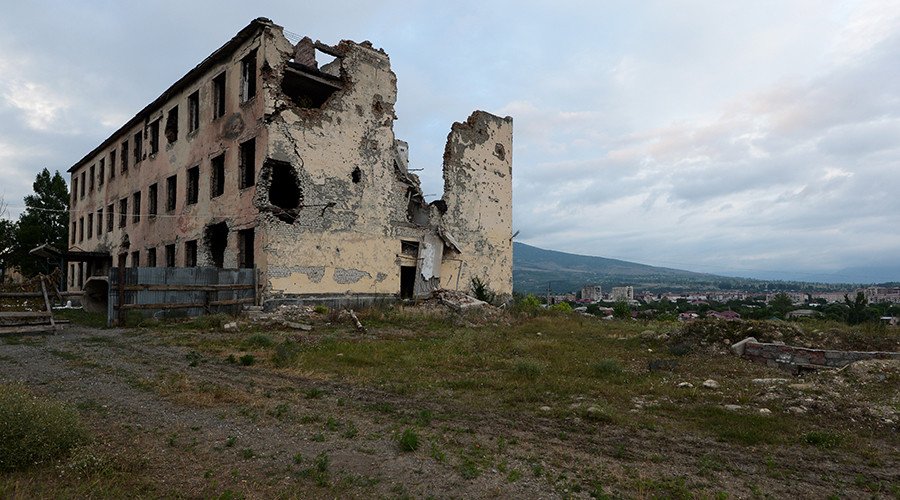
"Russia conducted a peace enforcement operation. There was no other way: both the law and our conscience compelled us," Medvedev added.
After Moscow’s failed attempts to secure an urgent UN-brokered ceasefire, Medvedev made the decision to send troops in to keep the peace in the border region. In a matter of days, they put an end to the violence. The Russian military pushed the Georgian forces back from their offensive positions, and withdrew from Georgia. Moscow recognized the independence of the then-self-proclaimed Republic of South Ossetia, while Georgia cut off diplomatic ties with Russia.
EU report: Conflict started with massive Georgian attack
In December 2008, the Council of the European Union established an Independent International Fact-Finding Mission on the events in South Ossetia and Georgia, saying that it was "the first time in its history that the European Union has decided to intervene actively in a serious armed conflict."
The mission later concluded a report which stated that the 2008 conflict "started with a massive Georgian artillery attack" on Tskhinval and the surrounding areas.
The inquiry specifically stated that "there was no ongoing armed attack by Russia before the start of the Georgian operation. Georgian claims of a large-scale presence of Russian armed forces in South Ossetia prior to the Georgian offensive on 7/8 August could not be substantiated by the Mission."
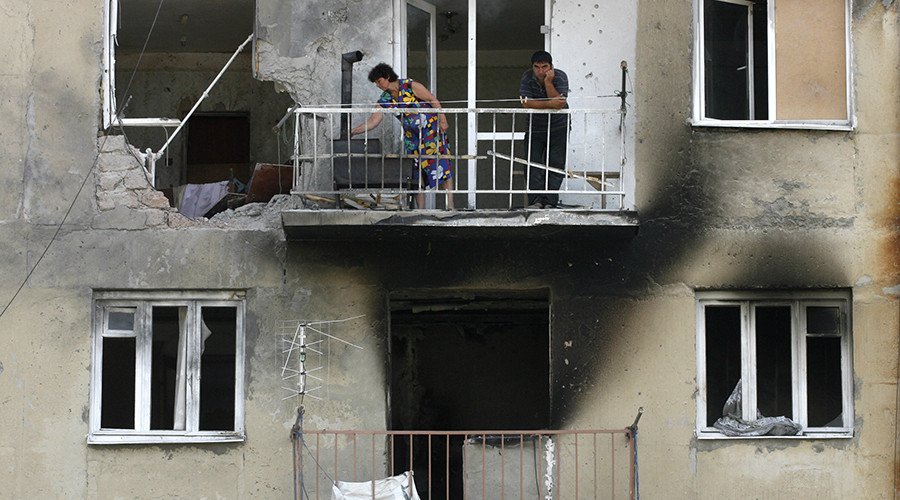
"It could also not be verified that Russia was on the verge of such a major attack, in spite of certain elements and equipment having been made readily available. There is also no evidence to support any claims that Russian peacekeeping units in South Ossetia were in flagrant breach of their obligations under relevant international agreements," the EU report said.
Swiss diplomat Heidi Tagliavini, who headed the independent international fact-finding mission, also rejected Tbilisi's "self-defense" claims against alleged Russian aggression.
Breaking information blockade
The start of the war was marked by a near-complete media blackout in the West despite the heavy Georgian shelling of civilians with multiple rocket launchers. However, as soon as the Russian troops stepped in, coverage of perceived Russian "aggression" made international headlines.
US citizen Amanda Kokoeva was presented with an Award of Friendship from South Ossetian President Anatoly Bibilov for challenging the mainstream media narrative at the time of the conflict. Kokoeva and her aunt were infamously cut off live on Fox News when they began speaking about the Georgian, not Russian, aggression.
Back in August 2008, Amanda was 12 years old. Living in California at the time, she was on vacation visiting her large family in South Ossetia when she was caught in the shelling, but managed to flee back to the US unharmed.
In America, she and her aunt, Laura Tedeeva-Korewiski, were invited to speak live on Fox News.
"It was really scary, I didn't know what was happening, we were just sitting normally [in a cafe] and everybody from outside started running in, and it was just so scary," Amanda said, adding that after having spent a night in her uncle's basement she was taken to safety.
"But before I say anything else, I just wanna say that I was running from Georgian troops bombing our city, not Russian troops, I wanna say thank you to the Russian troops that were helping us out," the girl went on, saying that many of her relatives including her grandmother remained in South Ossetia, and the family didn't know if they were alive.
The host then hurried to switch to the adult, saying that he "cannot even imagine seeing a 12-year-old girl go through all of this."
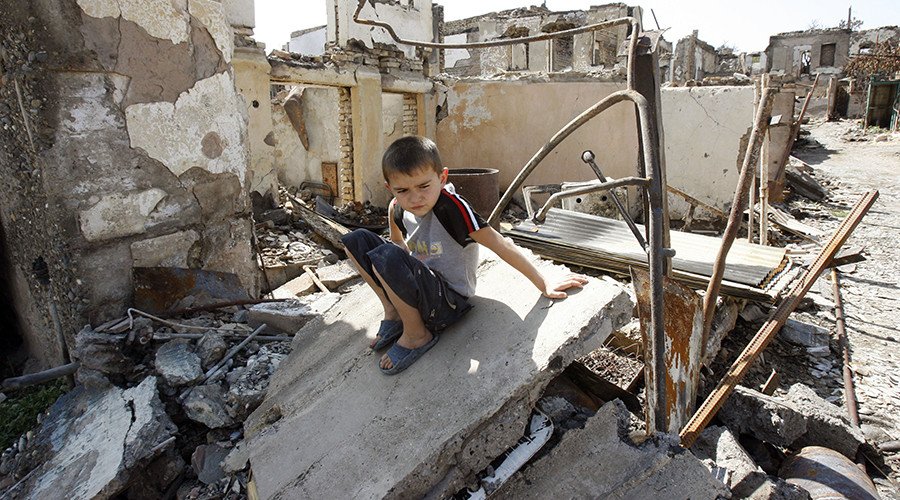
However, Tedeeva-Korewiski turned out to be even more particular in her assessment, saying that "that's Mr. Saakashvili who started this war and Mr. Saakashvili who is aggressor, and for two days my people, Ossetian people were killed and bombed, and 2,000 were killed in one day."
"Right! I would never cut you off, unfortunately a commercial break will take us there in four seconds whether we like it or not," the host responded.
After the break, the woman was given less than 30 seconds to finish her thoughts, in which she called for the resignation of Saakashvili, to which the host responded it was "certainly what the Russians want."
Meanwhile on CNN, Georgian President Mikhail Saakashvili was given all the time he needed to talk live how "Georgia is under attack from its neighbor Russia."
Moscow was "specifically targeting civilian population," Saakashvili alleged, adding that his country was "in self-defense against Russian aggression" and claiming that Russian troops, which were in fact sent to protect its citizens and peacekeepers in the region, "invaded Georgia."
Nearly a decade since the conflict broke out, Saakashvili is wanted in Georgia on charges of embezzlement and abuse of power and finds himself in the middle of a political drama in Ukraine, trying to cling to his Ukrainian citizenship that the current pro-Western government in Kiev first granted and then revoked.
He, however, remains a trusted and often quoted source in the Western media whenever he makes a statement against Russia or Putin and talks about the "Russian aggression" in Georgia.
'Nobody paid a price'
Years after the conflict, even despite the international investigation, nobody has been held responsible for the bloodshed, former Georgian parliament speaker, who also served as the acting head of state of Georgia twice, Nino Burjanadze, told RT.
"It was a general lie that nobody is responsible for that [in Georgia]. Nobody paid a price for beginning the war, nobody paid a price for people having been not evacuated on time... There was no investigation [in Georgia], so that means that nobody [was held] responsible for what happened in 2008 from the side of Georgian political elite," Burjanadze said in an exclusive interview with RT.
"Saakashvili began a war and Saakashvili is the person who is most responsible in these tragic events. I was declared the enemy of the country by all media. Even right now, despite the investigation made by the European Union, despite Tagliavini's declaration, despite everyone knowing what really happened, to say that Saakashvili began the war is very uncomfortable in Georgia and nobody wants to stress or say this."
There have been "some forces in the West, especially in the US, who supported Saakashvili during his actions in 2008," Nino Burjanadze told RT. "Even more, sometimes I have a feeling that despite the official position of the high officials in the US, there are some very strong forces who were trying to force Saakashvili or to provoke Saakashvili to begin this war in 2008. It was pre-election period in the US and it was very useful for some aggressive forces in the US to use that anti-Russia card," Burjanadze said.
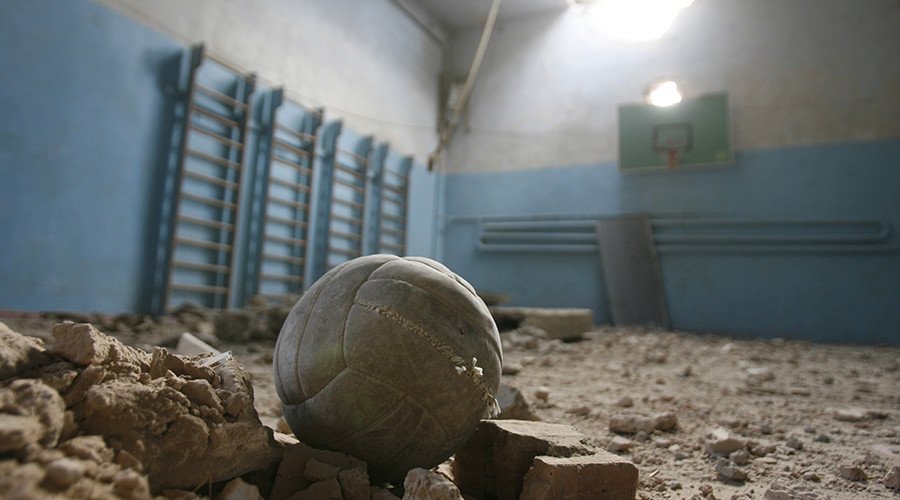
Nine years on, despite some improvements in Moscow-Tbilisi relations, no one in Georgia has been held accountable for the five-day war, she said.
"I am very much disappointed that Georgia didn't use these years for solving the problems, just the opposite: many politicians are closing eyes on the reality of the problems. Unfortunately, the tragic events of 2008 bring such serious problems [for the country], that we can't just create better possibilities for Georgia in the future," Burjanadze said.












